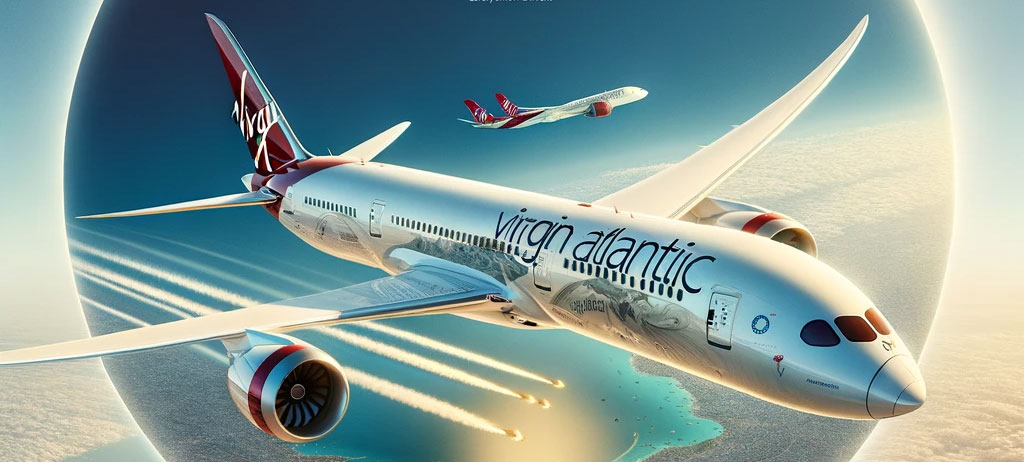
First Long-Haul Flight Fully Powered by Sustainable Fuel
Virgin Atlantic recently achieved a significant milestone in sustainable aviation with its first long-haul flight entirely powered by Sustainable Aviation Fuel (SAF). This landmark event marked an important step in the airline industry's efforts towards reducing carbon emissions and promoting environmentally friendly travel.
Flight Details
The flight, named Flight100, took off from London's Heathrow Airport and successfully landed at New York's John F. Kennedy International Airport. This journey across the Atlantic was not just a demonstration of technical capability but also a symbol of the aviation industry's commitment to reducing its environmental impact.
The flight was operated using a Boeing 787, powered by Rolls-Royce Trent 1000 engines. The Boeing 787 is renowned for its fuel efficiency and lower carbon emissions compared to other aircraft, making it an ideal choice for this groundbreaking flight.
The flight departed from London at 1149 GMT and arrived in New York at 1405 EST, 35 minutes ahead of schedule. The punctuality and smooth operation of the flight demonstrated the practical viability of SAF in regular commercial aviation operations.
The SAF used was a unique dual blend consisting of 88% Hydroprocessed Esters and Fatty Acids (HEFA) supplied by AirBP and 12% Synthetic Aromatic Kerosene (SAK) supplied by Virent, a subsidiary of Marathon Petroleum Corporation. The HEFA component is derived from waste fats, and the SAK is produced from plant sugars. This blend was carefully formulated to meet the requirements of jet engines while reducing carbon emissions.
What set this flight apart from previous SAF flights was its use of 100% SAF for a commercial airline across the Atlantic. Earlier flights using SAF had only blended the fuel with traditional jet fuel, usually up to a 50% blend. Virgin Atlantic’s Flight100 was the first to demonstrate that a commercial airliner could fly long-haul entirely on 100% SAF.
The use of SAF, while promising, presents significant challenges. The high cost and limited supply of materials needed for SAF production are major obstacles to its widespread adoption. Currently, SAF accounts for less than 0.1% of global jet fuel volumes and can cost three to five times more than regular jet fuel.
While the specific impact of this flight on Virgin Atlantic's stock price was not immediately clear from the available information, such pioneering efforts in sustainability typically bolster a company's image and can positively influence investor confidence. However, as Virgin Atlantic is a private company, direct stock market impacts are not as observable as they would be for a publicly listed company.
Virgin Atlantic's successful operation of Flight100 represents a significant step forward in the aviation industry’s journey towards more sustainable and environmentally friendly travel. The successful demonstration of 100% SAF in a commercial long-haul flight signals a potential shift in the future of aviation, aligning with broader global efforts to combat climate change and reduce carbon emissions

0 Comments